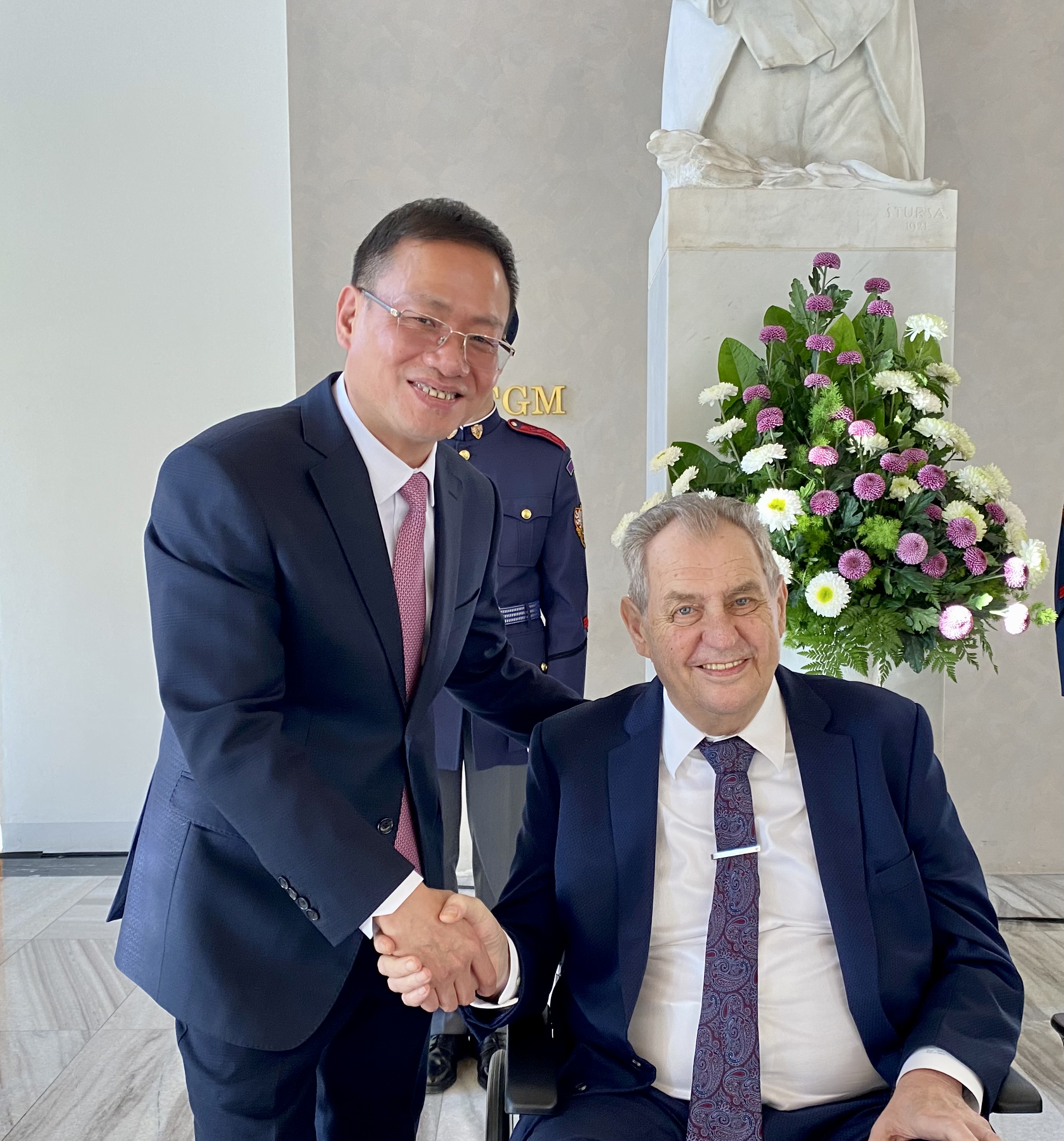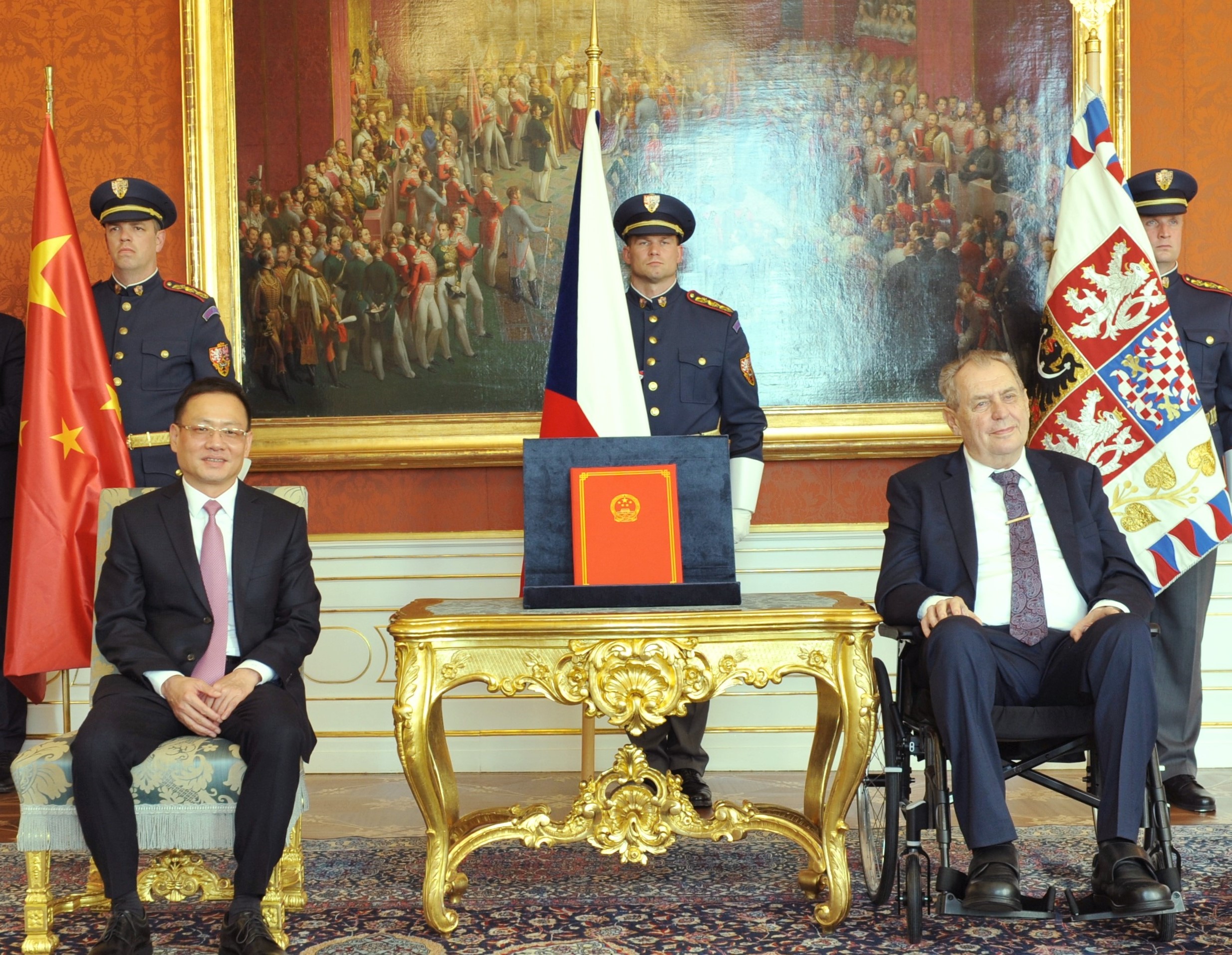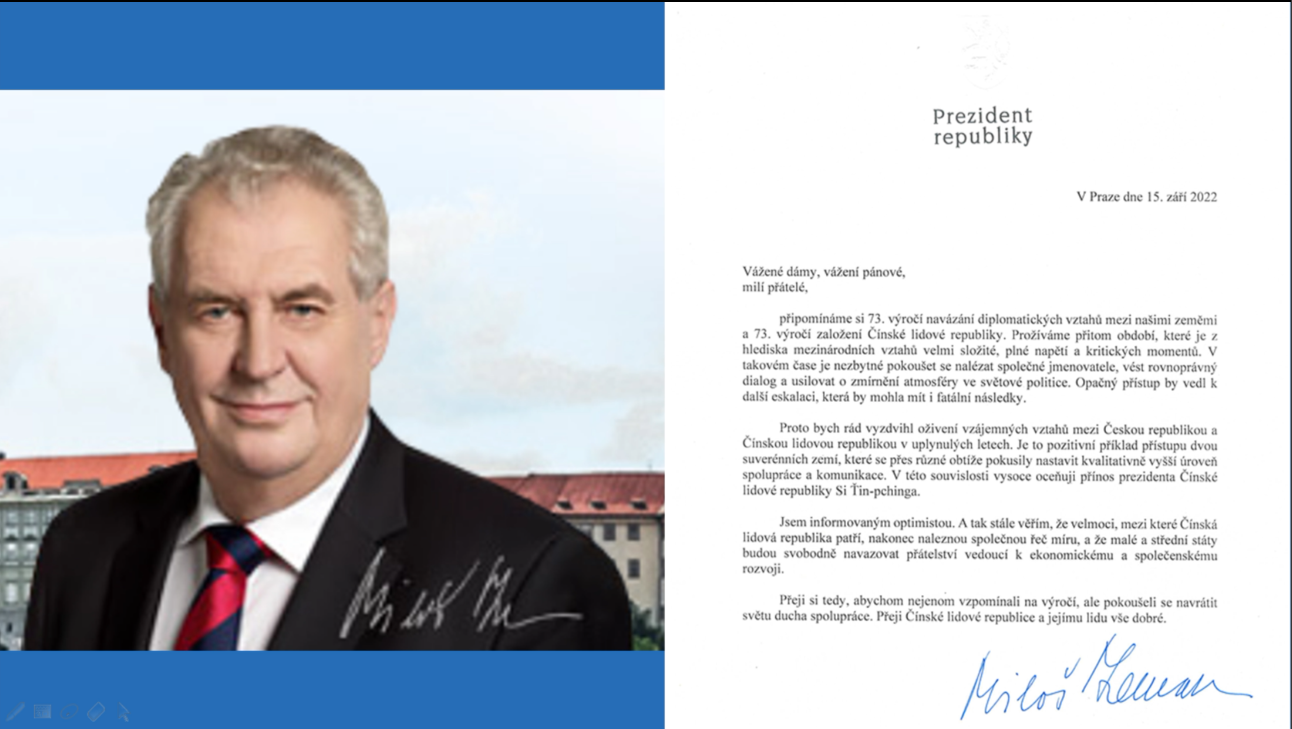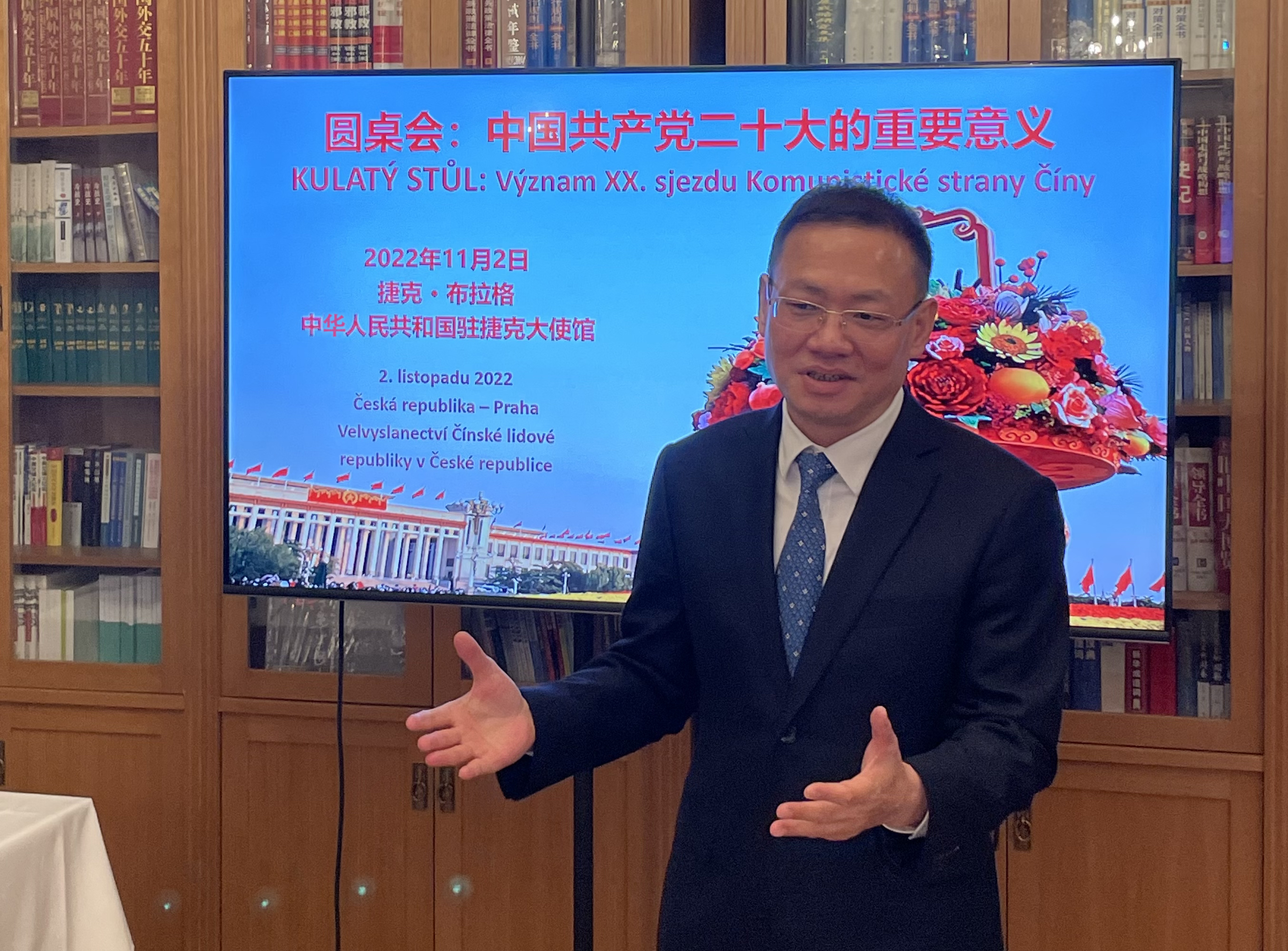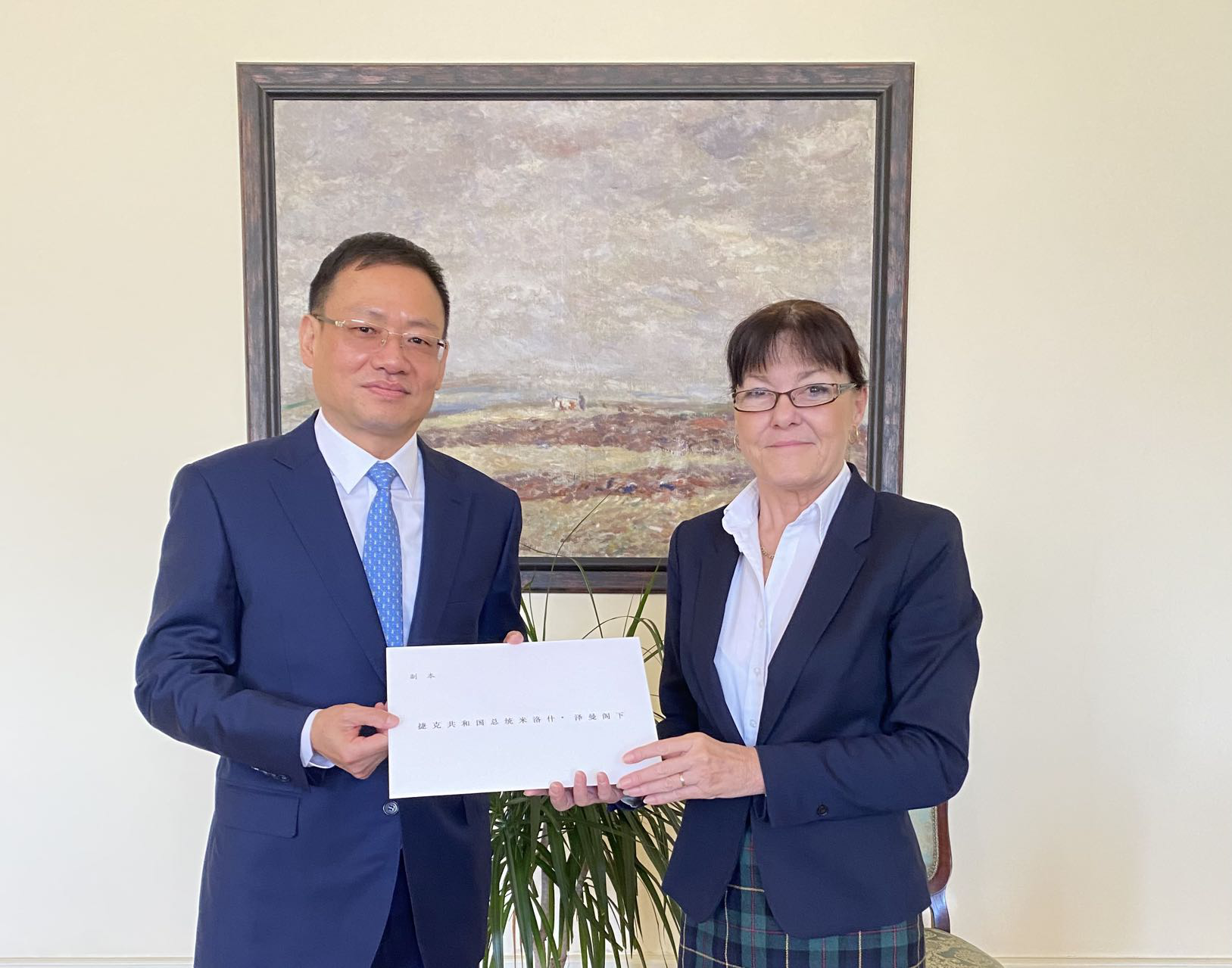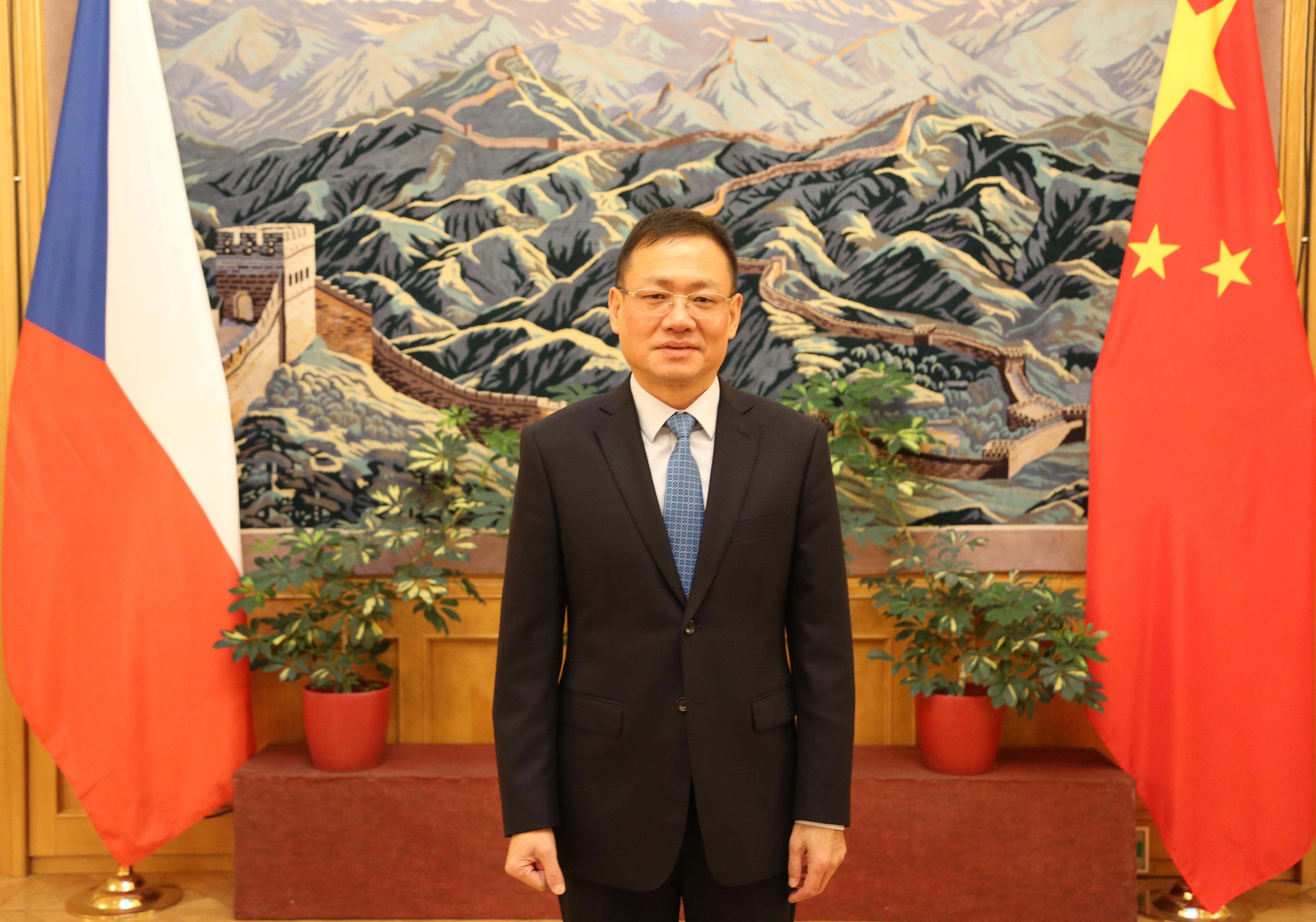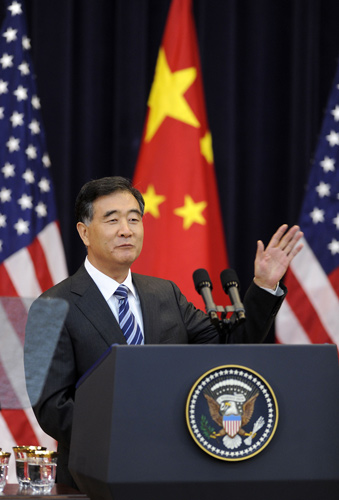| Join Hands to Usher in a New Era of Cooperation across the Pacific |
| 2013-07-11 09:30 |
| Join Hands to Usher in a New Era of Cooperation across the Pacific Remarks by Wang Yang, Vice Premier of the State Council of the People's Republic of China At the Joint Opening Session of the Fifth Round of The China-US Strategic and Economic Dialogues Washington D.C., 10 July 2013
The Honorable Secretary of State John Kerry, I am pleased to attend the fifth round of the China-US Strategic and Economic Dialogues (S&ED) in the beautiftul city of Washington D.C. together with State Councilor Yang Jiechi as the Special Representatives of President Xi Jinping. On behalf of the Chinese delegation, 1 wish to express heart-felt thanks to the US side for the thoughtful arrangements and pay tribute to the working teams of the two sides for their hard work. During their historic meeting in California one month ago, President Xi Jinping and President Barack Obama, with great vision and foresight, reached the important agreement on working together to build a new model of major-country relationship between China and the United States. This charted the course for the future growth of China-US relations. Our job in this round of the S&ED is to turn the important agreement between the two presidents into tangible outcomes and add substantive content to this new model of major-country relationship, so as to bring benefits to the people of the two countries and the world around. China-US relationship is one of the most important bilateral relations in the world. The S&ED, jointly initiated by the two presidents in 2009, has served as an important platform for the two countries to enhance mutual trust, expand cooperation and manage differences. Over the past four years, the two sides have had close communication and candid discussions on issues of long-term, strategic and overarching importance, which have enabled the giant ship of China-US relationship to always forge ahead in the right direction. History of the world tells us that for countries, dialogue works better than confrontation and debate than fight. Before China and the United States established diplomatic ties, the two countries were in a state of no contact and often found themselves to be exchanging accusations and abuses without actually seeing each other. But that didn't settle anything. Since the establishment of diplomatic ties, particularly since China's accession to the WTO, the exchanges between China and the United States have become increasingly close and we have carried out frequent dialogues of various forms at all levels. While we did have a fair amount of bitter argument, sometimes heated ones, both of us had actually benefited from such exchanges. One of the accomplishments is the surge of two-way trade from US$333.7 billion during the 2008 global financial crisis to nearly US$500 billion in 2012. What has happened shows that to maintain long-term dialogue between our two big countries not only benefits the Chinese and American people, but also serves peace and development of the world. Dialogue and debate are often found to be important means that lead to creative ideas. When cornered by a rival in a debate, one would often come up with some quick wits. He would either find new ways to get over the "wall", or settle down on agreement for cooperation, thus finding a solution to the problem. As an ancient Chinese poem goes, "After endless mountains and rivers that leave doubt whether there is a way out, suddenly one encounters the shadow of willows, bright flowers and finds the path to another village." We are ready to have dialogue, listen to different voices and be receptive to the right views. Through the course of globalization, through our dialogue with all parties including the United States, and by way of listening to different views and opinions, we have detected some of the problems that hindered our steps forward, and that in turn helped us to improve on what we do. Naturally, like the United States, we will never accept views, however presented, that undermine our basic system or national interests. To us, a dialogue like that is simply unacceptable. This is our bottom line and we will never give it up. This round of the S&ED provides an opportunity for us to build on past achievements and look ahead towards the future. The international landscape is undergoing profound and complex changes. Despite many of our differences, our common interests are also growing. For us, candid dialogue and sincere cooperation remains the right option. We need to raise our strategic mutual trust to new heights through dialogue. Trust starts with communication and exchanges. The more communication and exchanges we have, the less misunderstanding and disagreement. I believe our mutual trust would be raised to new levels if we continue to strengthen our dialogue, view each other's strategic intentions from an objective and sensible perspective, respect each other's choice of social systems and development paths as well as core interests and major concerns, and learn to appreciate each other's cultural tradition and way of thinking. We need to seek new opportunities to deepen cooperation through dialogue. For China and the United States, there is huge space for cooperation in many areas. Both countries are vigorously advancing economic reform and structural adjustment. Cooperation opportunities abound in this process. During this round of economic dialogue, we will focus on such major issues as macroeconomic policy coordination, trade and investment, energy security, climate change and financial stability and reform, deepen cooperation in investment, finance, energy, green cconomy and infrastructure and find new areas of converging interests and growth so as to inject "positive energy" to China-US relations. We need to explore new ways to manage differences through dialogue. Given our differences in development stage, social system, cultural tradition and economic interests, it is unavoidable that we may have some misunderstandings, disagreements and even frictions. What we need to do is to narrow the gap and manage the differences through dialogue, refrain from politicizing economic and trade issues or playing up certain specific issues. We have to make sure that the steady growth of China-US relations is not affected by certain isolated issues at any particular time. We need to forge new consensus on upholding world peace and development through dialogue. China is the world's largest developing country and the United States the largest developed one. The importance of our relations has gone far beyond the bilateral scope and acquired global significance. Good cooperation between China and the United States can serve as an anchor for world peace and stability and an engine for prosperity and development. Dear colleagues, This round of S&ED presents a new model of major-country relationship that is based on non-conflict, non-confrontation, mutual respect and win-win cooperation. I am sure that the outcomes of the dialogue will further boost our confidence in building a new model of major-country relationship. Let's join hands to usher in a new era of cooperation across the Pacific. Thank you! |
|
||||||||||||||||
| ||||||||||||||||
|
|
||||||||||||||||

